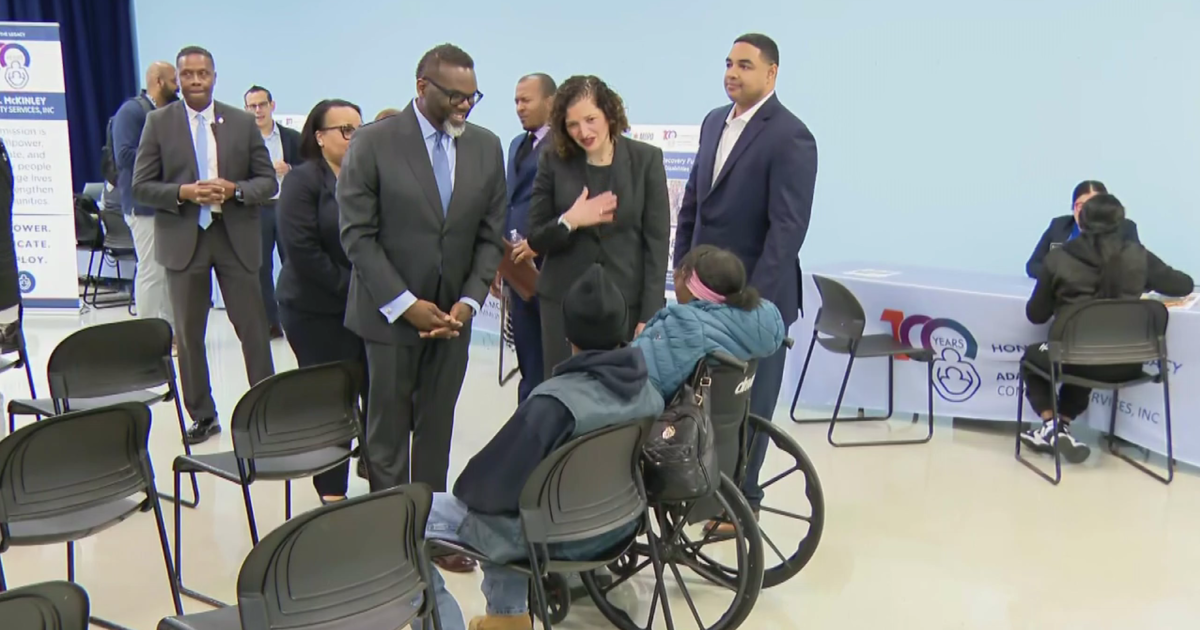U.S. Consumer Prices See Steepest Jump In 40 Years; Even Economists Are Surprised
CHICAGO (CBS Chicago/CBS News) -- In a holiday hit that we'd all rather not hear about, the U.S. Department of Labor has announced that prices shot up almost 7 percent this year.
It is the fastest one-year jump in 40 years, and as CBS 2 Political Investigator Dana Kozlov reported Friday, the jump is likely hitting families pretty hard.
The reason in part is that some things have gone up in price more than others. For instance, the price of food has gone up more than that of clothes and furniture. That adds an extra punch.
The Consumer Price Index, which tracks the price of a broad range of goods, rose 0.8 percent November and is up 6.8 percent from a year ago, the Labor Department said on Friday. Core inflation, which strips out volatile food and fuel prices, increased 0.5 percent last month and 4.9 percent over the last year.
The price increases hit a broad range of goods, with food, shelter, new and used cars, and gasoline all showing the largest jumps. Energy costs last month soared 33 percent over the last year, food costs rose 6 percent, and used car and truck prices climbed 31 percent.
For consumers under the age of 40, the recent run-up in prices represents the most severe bout of inflation in their lifetime. The last time Americans saw persistent price increases was in the 1970s, when U.S. oil supplies were disrupted, initially during an embargo by Middle Eastern producers.
Inflation leaped from below 3 percent in 1972 to over 13 percent in 1979, prompting the Federal Reserve to ratchet up interest rates to as high as 20 percent. By 1982, inflation had fallen back into the single digits, but the experience left many policymakers scarred and shaped monetary policy for decades.
All this is even taking economists by surprise. Northwestern University Professor Mark Witte said he did not see it coming.
"I expected it to be high, but you know, that's certainly up there," Witte said.
Witte said supply chain issues – including shipping – are a big factor. So is demand for products, which is compounding those issues.
"We're buying a lot more stuff now, for reasons I don't understand," Witte said, "and so it's going to take a while to build up the facilities – the port facilities, the crane facilities, the shipping facilities – to handle this higher level of demand for physical goods."
And the commodities that have seen the biggest price hikes – food, rent, and energy – are all necessities rather than luxuries. Witte does not see those prices coming down, or wages going up that dramatically, anytime soon.
"In the meantime, it will be really painful – absolutely," Witte said.
It will be especially awful at the grocery store. But the typically-fluctuating gas prices, Witte said, will likely go down faster.
As for what people get paid, Witte expects that will start going up sooner rather than later – but slowly.
"I do think that wages will catch up, but I don't think it will be by next year," Witte said.
The flipside is that White and other economists say the Federal Reserve is likely to raise interest rates to stabilize the economy. This means those low interest rate loans that have been so common for the past couple of years will soon be on their way out.
Contributing: Irina Ivanova/CBS News



